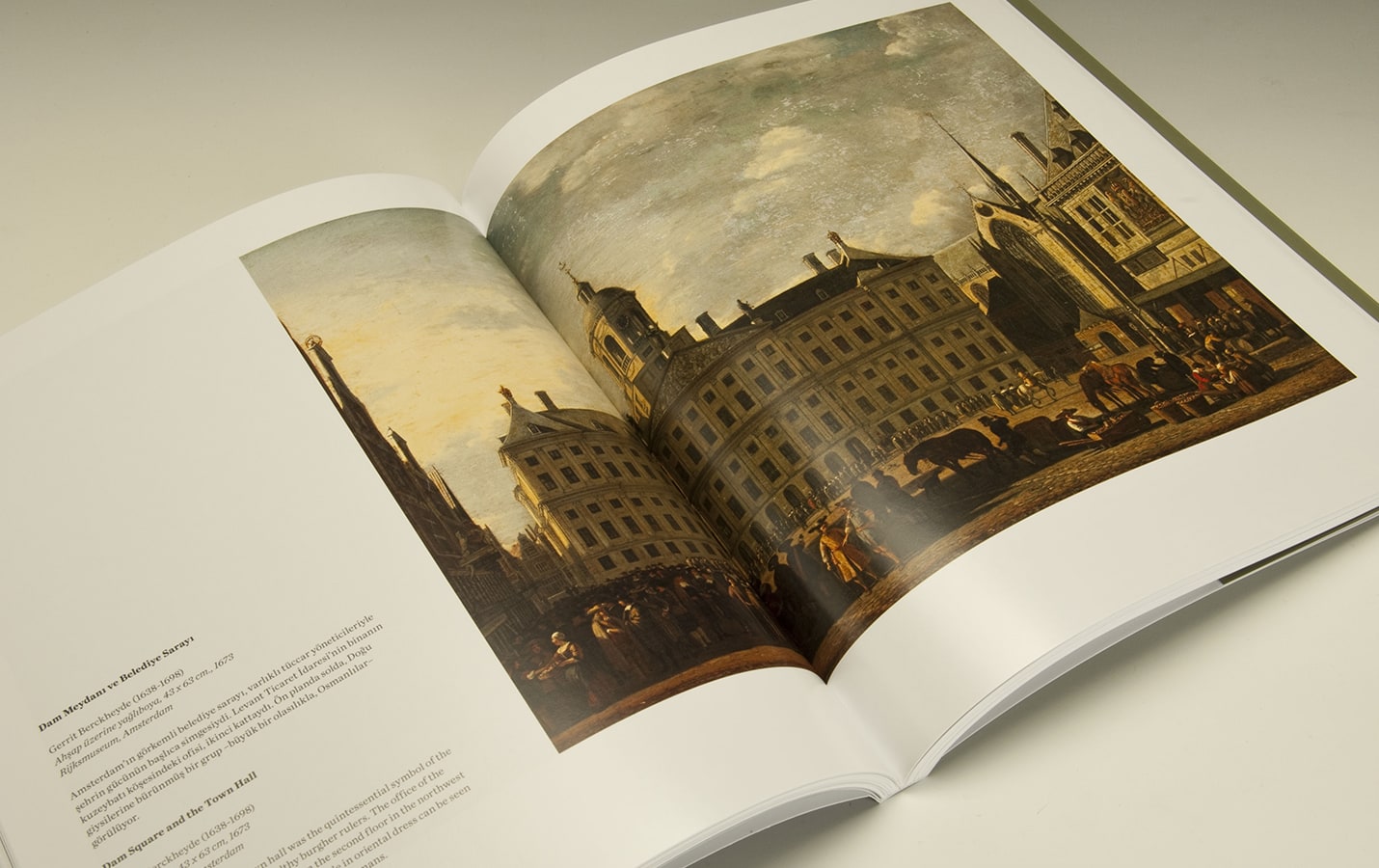January 21 - April 1, 2012
Pera Museum, in collaboration with the Amsterdam Museum, organized an exhibition exploring the commencement of four hundred years of fruitful cooperation between Turkey and the Netherlands. It was on 14th March, 1612, during the rule of the Ottoman Empire that the first Ambassador of Dutch Republic, Cornelis Haga, arrived in Constantinople. The year 2012 marked the four hundredth year of diplomatic relations.
In collaboration with several other leading partners, including the Rijksmuseum in Amsterdam, Nationaal Archief in The Hague and Museum Boijmans van Beuningen in Rotterdam, the exhibition explored the historical and contemporary relations between two world cities and through these cities, implicitly the two countries. ‘Pioneers’ and ‘image (-forming)’ are among the prominent themes. The exhibition was not intended as a complete survey of four centuries of diplomatic ties, but rather to provide a striking insight into the historical ties between Amsterdam and Istanbul, from 1612 to the present day.
The exhibition was both historical and social in approach, yet it also featured important art works, with a key section of the exhibition dedicated to the reconstruction of the Levantse Handel (Levant Trade) chamber that was based in the Town Hall (Palace on Dam Square) from the early 17th to early 19th century. A detailed inventory exists of the paintings and charts that were displayed on the walls of this powerful commercial office in Amsterdam. Many of these items, including an extensive series of portraits by Vanmour, from the collection of Amsterdam’s Rijksmuseum were also exhibited.
Istanbul and Amsterdam, Turkey and the Netherlands, have been and continue to be important bridges between Europe and Asia; major players in the international world of commerce, diplomacy, art and migration. The exhibition, firstly taking place at Pera Museum, before travelling to the Amsterdam Museum, highlighted the connection between Turkish and Dutch history; stimulating mutual (multi-) cultural understanding for today.
Exhibition Catalogue

Pera Museum, in collaboration with the Amsterdam Museum, organized an exhibition titled Sultans, Merchants, Painters: The Early Years of Turkish - Dutch Relations, exploring the...
Video

Pera Museum Blog is launching a new series of creepy stories in collaboration with Turkey’s Fantasy and Science Fiction Arts Association (FABISAD). The Association’s member writers are presenting newly commissioned short horror stories inspired by the artworks of Mario Prassinos as part of the Museum’s In Pursuit of an Artist: Istanbul-Paris-Istanbul exhibition. The third story is by Murat Başekim! The stories will be published online throughout the exhibition. Stay tuned!
Tuesday - Saturday 10:00 - 19:00
Friday 10:00 - 22:00
Sunday 12:00 - 18:00
The museum is closed on Mondays.
On Wednesdays, the students can
visit the museum free of admission.
Full ticket: 300 TL
Discounted: 150 TL
Groups: 200 TL (minimum 10 people)